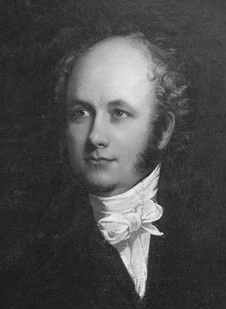
The Advertiser is a daily tabloid format newspaper published in the city of Adelaide, South Australia. First published as a broadsheet named The South Australian Advertiser on 12 July 1858, it is currently a tabloid printed from Monday to Saturday. The Advertiser came under the ownership of Keith Murdoch in the 1950s, and the full ownership of Rupert Murdoch in 1987. It is now a publication of News Corp Australia. Through much of the 20th century, The Advertiser was Adelaide's morning broadsheet, The News the afternoon tabloid, with The Sunday Mail covering weekend sport, and Messenger Newspapers community news. The head office was relocated from a former premises in King William Street, to a new News Corp office complex, known as Keith Murdoch House at 31 Waymouth Street.

William Giles, occasionally referred to as William Giles, sen. to distinguish him from his eldest son, was the third colonial manager of the South Australian Company, and a South Australian politician, who was prominent in the founding of the colony of South Australia.
Horwood Bagshaw Ltd. is an Australian agricultural machinery manufacturer and dealership chain whose origins date from the late 1800s.

Townsend Duryea and his brother Sanford Duryea were American-born photographers who provided South Australians with invaluable images of life in the early Colony. Their parents were Ann Bennett Duryea (1795–1882), and Hewlett K. Duryea (1794–1887), a land agent, possibly a member of the family well known for starch manufacture in Glen Cove, Long Island, in New York City.
James and John Chambers were early settlers in South Australia who left England in 1836, became wealthy pastoralists and were closely connected with John McDouall Stuart's expeditions across the continent of Australia.

Alexander Borthwick Murray was a Scottish-born sheep breeder and parliamentarian in the early days of South Australia.
William Rendall Cave was a grain merchant and shipowner in the early days of South Australia.
The Bowman brothers were pioneer pastoralists of Tasmania and South Australia. They were the sons of John Bowman : Edmund Bowman, John Bowman, William Charles Bowman and Thomas Richard Bowman.
James Crabb Verco was an early settler in the colony of South Australia, builder, businessman and parliamentarian. He was the father of Joseph Cooke Verco.
Charles Frederick Rischbieth, born Carl Friedrich Rischbieth, was a leading businessman in the early days of the colony of South Australia.
Alfred Scott Broad was an Australian artist, regarded as the first black-and-white artist born in South Australia to be published. He was known as "Alf", and was often referred to as "A. Scott Broad" as though his surname was "Scott-Broad", and was often written that way. An adult daughter was the subject of an unsolved mystery disappearance.
Frederic Britten Burden was a businessman and newspaper editor in the colony of South Australia.

James Andrew Trehane Lake, generally referred to as J. A. T. Lake, was a businessman, lawyer and politician in the British colony of South Australia.
Henry Simpson, often referred to as "Captain Simpson", was a ship's captain, ship owner and businessman in South Australia.
William Knapman was a hotel owner, brewer and businessman in the young colony of South Australia. He founded the hotel owning firm of Knapman and Son which survived past the mid-20th Century. His descendants included four of South Australia's most famous sportsmen, a well-known pianist and numerous publicans.
This is a list of members of the South Australian House of Assembly from 1896 to 1899, as elected at the 1896 colonial election:
William Mair was a politician in the British colony of South Australia.
Edith Agnes Cook, was in 1876 the first female student at Adelaide University, and second principal of the Advanced School for Girls in Adelaide, South Australia. She was later, as Edith Agnes Hübbe, principal of her own school in Knightsbridge, now Leabrook.
James Lyall was a Presbyterian minister in the early days of Adelaide, South Australia.
James Pile was a South Australian pastoralist who had extensive holdings on the Darling River in New South Wales, and succeeded by his sons William, John and Charles, collectively known as the Pile brothers.





